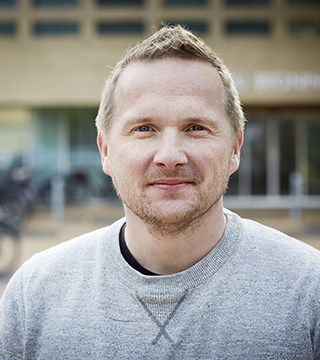
“Although vaccines are often effective - they can only be developed after we have characterized the virus. The world's population is thus virtually defenseless when it is hit by new disease-causing viruses.”
Research in the immune system against viral infections
The COVID-19 pandemic has made it clear that we need to develop broad-spectrum drugs against viral infections. While the vast majority of bacterial infections can be effectively treated with antibiotics, millions of people die each year from viral infections because virtually no viral infections can be treated effectively.
“In most cases, we are limited to treating symptoms and to developing vaccines. And although vaccines are often effective - they can only be developed after we have characterized the virus. The world's population is thus virtually defenseless when it is hit by new disease-causing viruses,” explains Professor Christian Kanstrup Holm.
Christian Kanstrup Holm, born 1978, is investigating the immune system during infection, and his research has been centered on finding out how the immune system detects and responds to infections, this has also included the defense against SARS-CoV2, which causes COVID-19.
A breakthrough has just hit this particular area of research. It has become clear that well-known biochemical mechanisms, those that regulate the energy turnover in cells, are central to the development of immunity. This is a central part of the research that takes place in Christian Kanstrup Holm's laboratory.
"We want to understand how biochemical mechanisms such as glycolysis and the Kreb´s cycle affect the interaction between virus and host," says Christian Kanstrup Holm, who early in his research career became interested in the relationship between the immune system and infections.
“The interest in the immune system became vague already during my thesis and PhD course, where I dealt with the herpes virus and the part of the immune system called the adaptive immune system. Later, the other part of the immune system, the innate immune system, caught my interest”, he says.

“Although vaccines are often effective - they can only be developed after we have characterized the virus. The world's population is thus virtually defenseless when it is hit by new disease-causing viruses.”